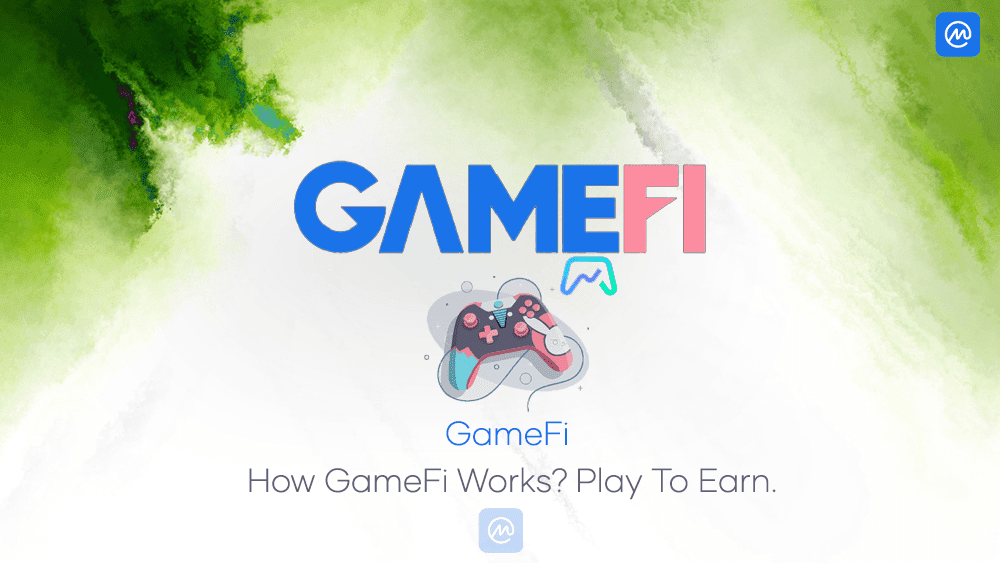GameFi | How GameFi Works? Play To Earn.
GameFi | How GameFi Works? Play To Earn
The rise of NFTs has sparked a growing trend within the gaming industry - GameFi. Crypto games run on blockchain networks, providing players with verifiable ownership over virtual assets within the games. This allows users to monetize their in-game items, enabling gaming as a legit way to make a living online today.
As the GameFi space evolves with increased innovation, developers are coming up with new ways to leverage digital assets to purchase and trade in-game products and cosmetics, unlock characters and more, accelerating the convergence of the virtual and real worlds to create what is shaping up to be the metaverse.
Also Check:
Is NFT Lending the Next Big Thing?
Adoption of Blockchain Technology with NFTs
GameFi | How GameFi Works? Play To Earn.
Top Crypto Investment Narratives For 2022
Video games have experienced significant evolution over the past few decades. The global gaming market was valued at $173 billion in 2020, and is predicted to reach $314 billion in the next five years. The onset of COVID-19 has helped boost the popularity of video games as people spent months at home due to travel restrictions. A large number of gaming companies reported significant growth in revenue and user base within the period.
Such a growth was not limited to traditional gaming; GameFi also received significant attention and was purported to be the next big thing in the market. A recent report by the Worldwide Asset exchange reveals that over 75% of online gamers were open to exchanging their in-game assets for a currency that could be used across multiple platforms. This may help to explain the explosive growth in GameFi, since it allows players to collect and trade digital assets that can be traded or sold for real cash. Additionally, it is proving to be a new way for the gaming industry to earn money.
How GameFi Works?
Typical monetization tactics in traditional online gaming revolve around affiliate marketing, in-app purchases and in-app advertising. Also, if you are a gamer, you should be familiar with in-game currencies, much like those you would earn when you play mobile games like Genshin Impact. The problem is that these in-game currencies do not have any value beyond the game's scope, which is not ideal.
In this aspect, GameFi stands out since it allows users to add value to their purchases. Digital assets within the game are stored on a distributed ledger as an NFT. As such, they can be freely traded or sold.
In traditional gaming, in-app purchases allow players to buy in-game currencies, extra lives, custom characters, outfits, accessories and so on directly from the game using fiat. For GameFi, the in-app purchases are carried out using cryptocurrencies. The significant difference between the two models is that the assets are generally bought from the developers in traditional games. The developers are the sole beneficiary of the game’s success.
Another difference between the two models is that the players have no control over the life cycle of traditional games. When the server is turned off, players will lose all access of their game accounts permanently. In contrast, GameFi players would still retain their digital assets as NFT tokens; they are free to transfer it to another gaming platform to continue their gaming experience.
Play-to-Earn: GameFi
Since crypto games run on a blockchain network that includes a completely or partially distributed ledger architecture, this provides players with verifiable ownership over virtual products contained in the games. Consequently, players can trade these digital assets for cryptocurrencies, which can be traded for fiat money.
With traditional games, only game studios and developers make profits from in-game currencies sold to gamers or users. Unfortunately, everything you could buy in a game, from armor, skin, upgrades and so on, only has a limited value despite users spending real money to purchase them.
The emergence of GameFi is changing this narrative. While traditional games have fundamentally focused on entertainment, crypto games are improving upon that experience with the added option of earning money as you play.
So far, we have witnessed the emergence of games such as Axie Infinity, CropBytes and Gods Unchained that allow players to earn money by using digital assets to achieve in-game objectives.
NFTs have turned out to be a billion-dollar market, and it is in games where they offer the best use cases. Assets such as armor, land, utility etc. within a game can become an NFT, and be freely sold on the digital marketplace.
The rise of GameFi, which combines decentralized finance with gaming, allows for the development of crypto games that can revolutionize the existing gaming industry. Players can now seek new and innovative ways to contribute to an in-game economy, and earn some money for themselves by doing so.


We welcome relevant and respectful comments. Off-topic comments and spamming links may be removed.
Please read our Comment Policy before commenting.